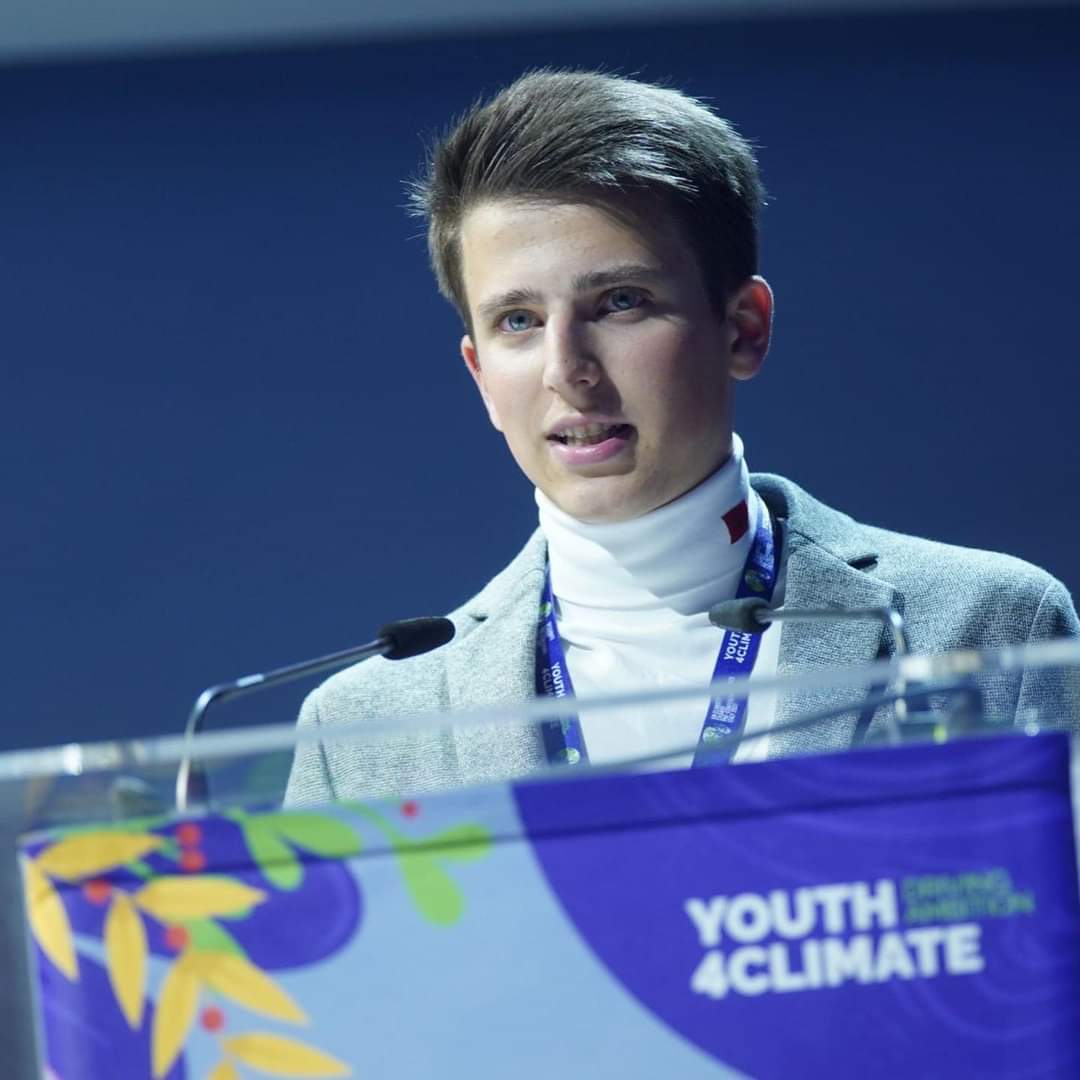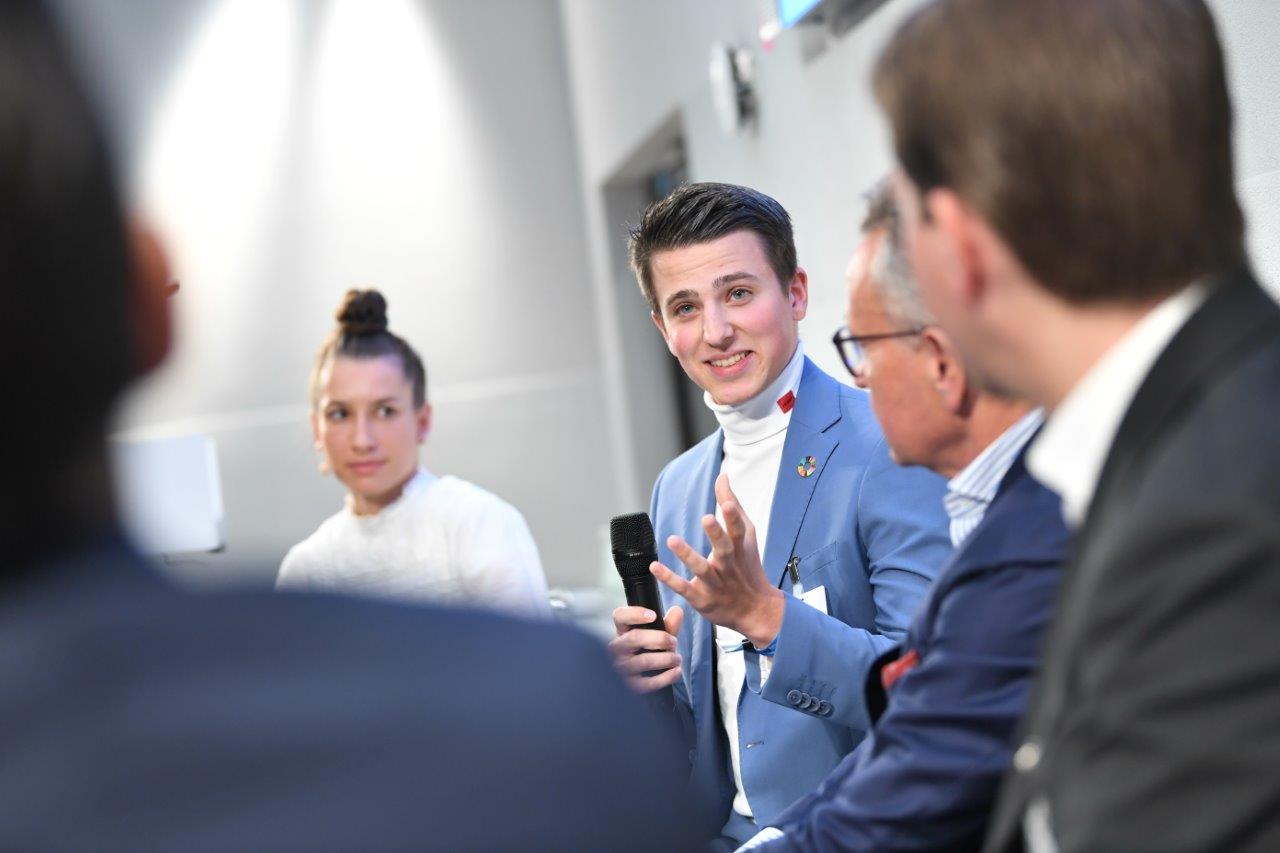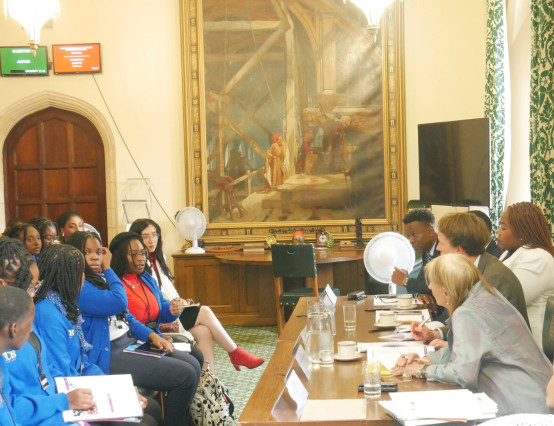Could you please introduce yourself to the reader and the country you represented?
Hi! I’m Joshua, a 19-year-old climate advocate from Germany. I’m studying Politics & Philosophy in Munich, Germany and devote most of my time to advocating for climate action and youth-centred policies.
Tell us more about why you got involved with COP27. What was your interest in it before attending? Do you have any other activism/policymaking experience?
As the German UN Youth Delegate for PreCOP-26, I was involved in writing the Global Youth Position Paper for COP26. Representing young voices at UN summits like COP26 and Stockholm+50, I amplified youth voices and the need for urgent climate action at different public speaking engagements, including the EU Climate Diplomacy Week and the UN Climate Change Conference of Youth.
I’m also currently working for UNICEF as a Youth Foresight Fellow to implement a youth-led trend analysis for the UNICEF Global Outlook Report on Children.
What did you do at the conference?
As part of the social media team of the UN youth constituencies “YOUNGO“ & “UN1FY”, I followed the negotiations very closely and reported for a global audience of young people. International climate talks can be very overwhelming and complicated.
By showing young people from around the world what a day at COP27 as a Youth Delegate looks like, what difficulties there are and what amazing advocacy work young people are doing on the ground, I tried to bridge the gap between the microcosmos of the COP27 venue and the billions of people affected by the decisions of the conference.
Did any speakers/policies stand out to you?
If you have ten minutes, watch Barbados’ Prime Minister Mottley’s inspiring speech at COP27:
We have the capacity to choose differently. The choice is ours. What will you do?
What do you think went well?
I am pleased about establishing the loss and damage fund that was decided at COP27.
Imagine your neighbour sets your house on fire, and instead of helping you extinguish it, they throw fuel into the fire. That was the situation of international climate politics in the last thirty years.
The rich countries most responsible for causing the climate crisis failed to provide financial support to help the communities most impacted by it. These communities are the least responsible for global carbon emissions.
Now the 27th UN Climate Change Conference (COP27) has ended, and there is hope. After three decades of deadlock, COP27 reached a consensus on paying countries for loss and damage caused by global warming.
Pakistan’s environment minister, Sherry Rehman, said the fund's establishment “is not about dispensing charity.”
And she's damn right: Pakistan contributes less than 1% of the world's greenhouse gas emissions, yet suffered devastating flooding that scientists say was made worse by climate change, resulting in more than 1,500 deaths, plunging one-third of the country underwater (that's the equivalent of 3/4 of Germany!) and causing US$30 billion in damages— just to name one example.

What do you think didn’t go well?
The final overarching deal didn't include commitments to "phased down" or reduce the use of fossil fuels. More than 600 delegates were linked to fossil fuels.
According to a recent UN Climate Change report, implementation of current pledges by national governments put the world on track for a 2.5°C warmer world by the end of the century. That’s a recipe for climate catastrophes beyond anything we can imagine.
How could world leaders, countries and states do better?
Youth participation is the easiest way to increase ambition within country delegations. Young people are incredibly motivated to take responsibility in negotiations, and many countries already include young people as negotiators or even lead negotiators!
Too many developed countries still do not include young people in their official delegations. This has to change
What are your hopes for next year at COP28?
Progress on a total phase-out of fossil fuels will be the bare minimum. Yet, I hope that frequently overlooked topics such as climate education and revolutionising the world’s food supply will also be a focus. Agriculture is responsible for one-third of global greenhouse gas emissions but is not part of the negotiations at COPs. Insane, isn’t it?
If you could send a message to COP37, what would you say?
Today, communities worldwide are already suffering some of the worst consequences of climate change. If you are still debating the same questions as we did at COP27 – whether you want to “encourage” or “urge” each other to more ambitious climate action – then you have failed future and existing generations. It’s time for actions, not for discussion on particular phrasing.
If you are interested in what Josh did and how young people can contribute to international climate politics, you can find out more over at @youngo.unfccc & @un1fywc !








0 Comments